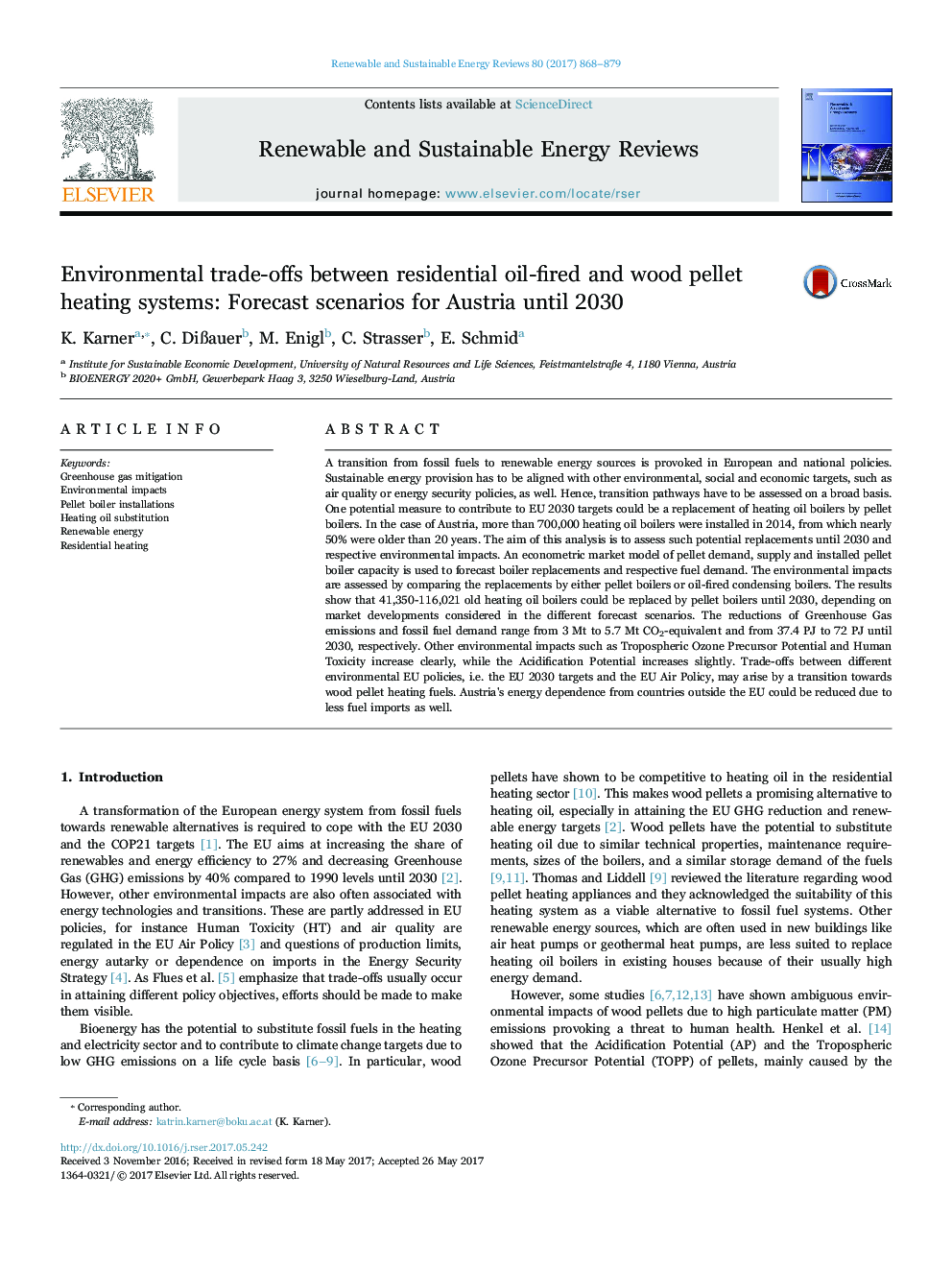| Article ID | Journal | Published Year | Pages | File Type |
|---|---|---|---|---|
| 5482101 | Renewable and Sustainable Energy Reviews | 2017 | 12 Pages |
Abstract
A transition from fossil fuels to renewable energy sources is provoked in European and national policies. Sustainable energy provision has to be aligned with other environmental, social and economic targets, such as air quality or energy security policies, as well. Hence, transition pathways have to be assessed on a broad basis. One potential measure to contribute to EU 2030 targets could be a replacement of heating oil boilers by pellet boilers. In the case of Austria, more than 700,000 heating oil boilers were installed in 2014, from which nearly 50% were older than 20 years. The aim of this analysis is to assess such potential replacements until 2030 and respective environmental impacts. An econometric market model of pellet demand, supply and installed pellet boiler capacity is used to forecast boiler replacements and respective fuel demand. The environmental impacts are assessed by comparing the replacements by either pellet boilers or oil-fired condensing boilers. The results show that 41,350-116,021 old heating oil boilers could be replaced by pellet boilers until 2030, depending on market developments considered in the different forecast scenarios. The reductions of Greenhouse Gas emissions and fossil fuel demand range from 3 Mt to 5.7 Mt CO2-equivalent and from 37.4 PJ to 72 PJ until 2030, respectively. Other environmental impacts such as Tropospheric Ozone Precursor Potential and Human Toxicity increase clearly, while the Acidification Potential increases slightly. Trade-offs between different environmental EU policies, i.e. the EU 2030 targets and the EU Air Policy, may arise by a transition towards wood pellet heating fuels. Austria's energy dependence from countries outside the EU could be reduced due to less fuel imports as well.
Related Topics
Physical Sciences and Engineering
Energy
Renewable Energy, Sustainability and the Environment
Authors
K. Karner, C. DiÃauer, M. Enigl, C. Strasser, E. Schmid,
